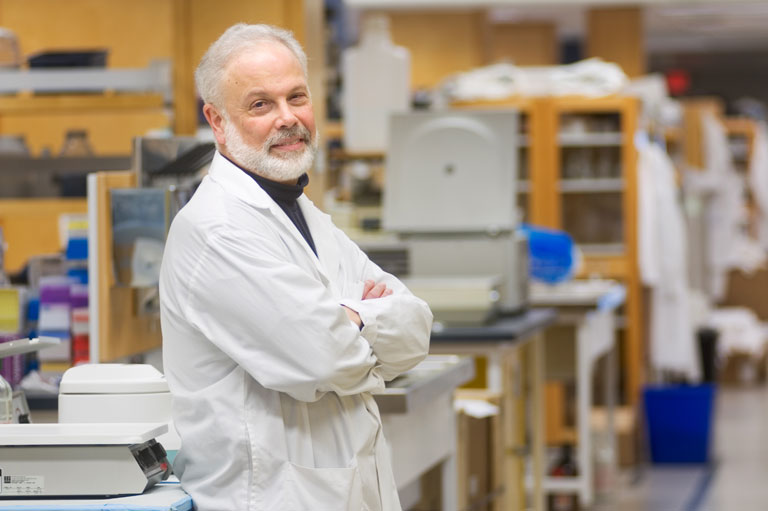New Alzheimer’s Treatment
A unique new treatment for Alzheimer’s Disease could put Canada—and UBC—in the history books for helping to prevent this killer disease that now affects one in 11 Canadians over the age of 65.
UBC Faculty of Medicine neuroscientist Neil Cashman, a member of the Brain Research Centre at UBC and Vancouver Coastal Health, has developed an immune-based treatment that targets the catalyst in triggering Alzheimer’s—a small clump of toxic protein molecules that forms plaques in the brain. While previous treatments targeted the plaques themselves, this new treatment aims to eradicate the toxin before it can cause any damage. The catch? The toxic version of the protein only lives a short time.
But, by producing antibodies that specifically attach to the toxic protein, Dr. Cashman, who is now working with Canadian biopharmaceutical company Cangene to develop a treatment, has created an effective early diagnostic for the disease, and has laid the groundwork for the development of a preventative vaccine.
“This is an all-Canadian solution in terms of its discovery, development and advancement towards the clinic,” says J.P. Heale, Associate Director of UBC’s University-Industry Liaison Office. “The partnerships developed to advance Dr. Cashman’s outstanding research are an excellent example of how Canadian universities, funding agencies and industry partners can work together to tackle a devastating disease of national and global importance.”
Related Content
“This is an all-Canadian solution and an excellent example of how Canadian universities, funding agencies and industry partners can work together to tackle a devastating disease of national and global importance.” – J.P. Heale, Associate Director of UBC’s University-Industry Liaison Office
Associated Commitment
Research Excellence